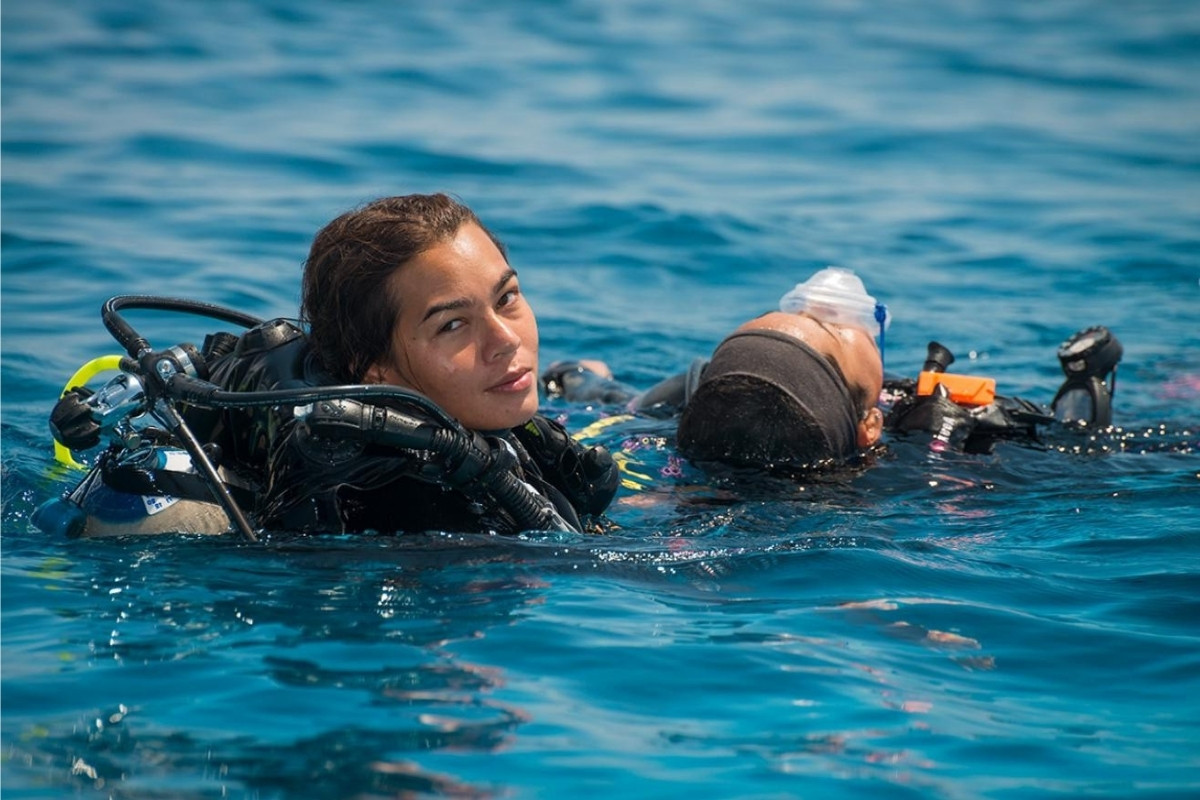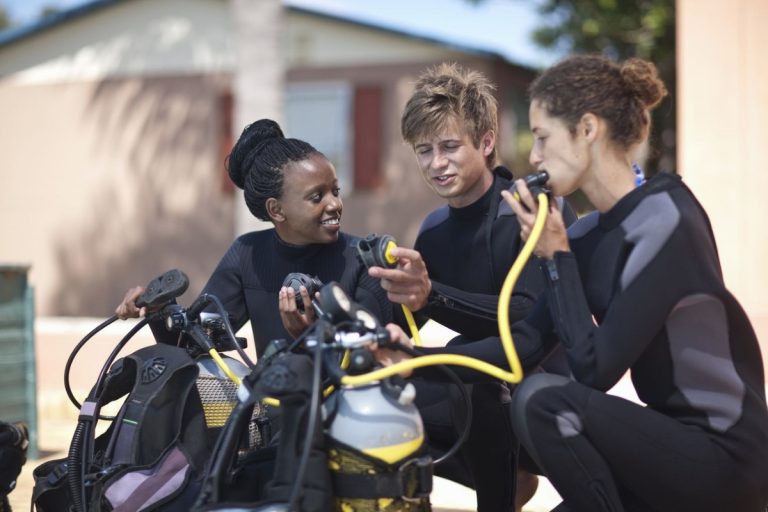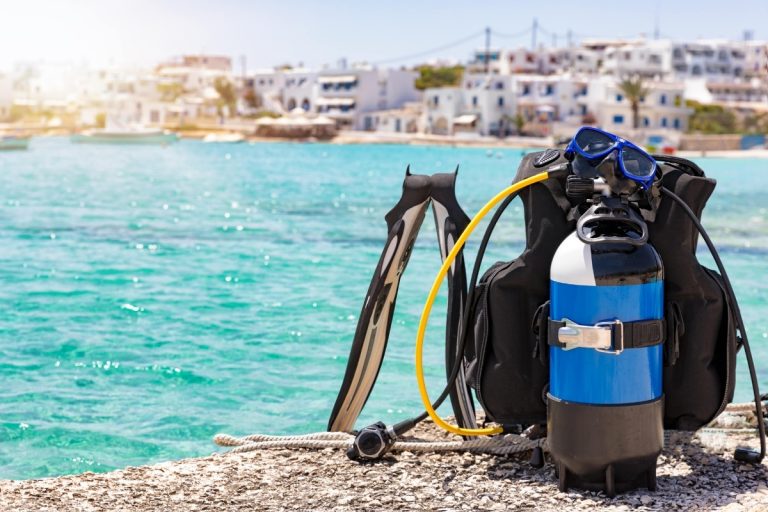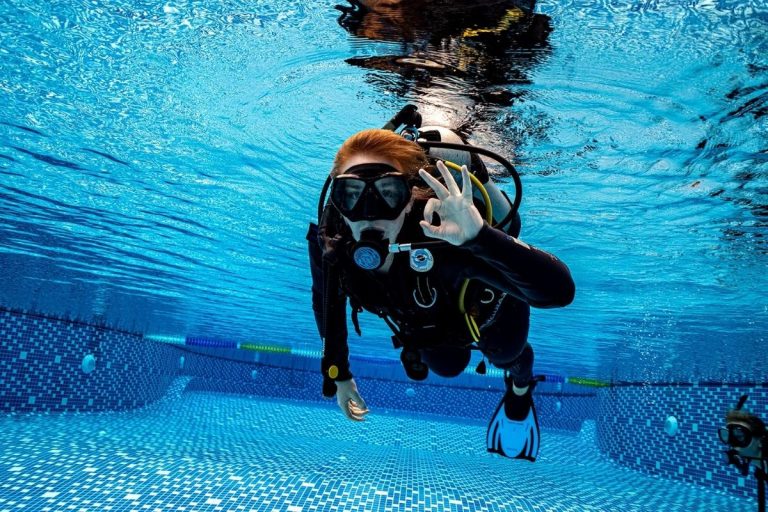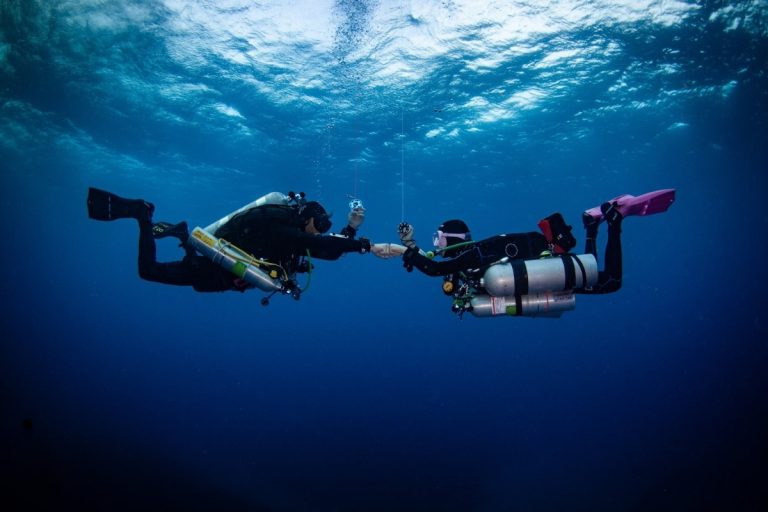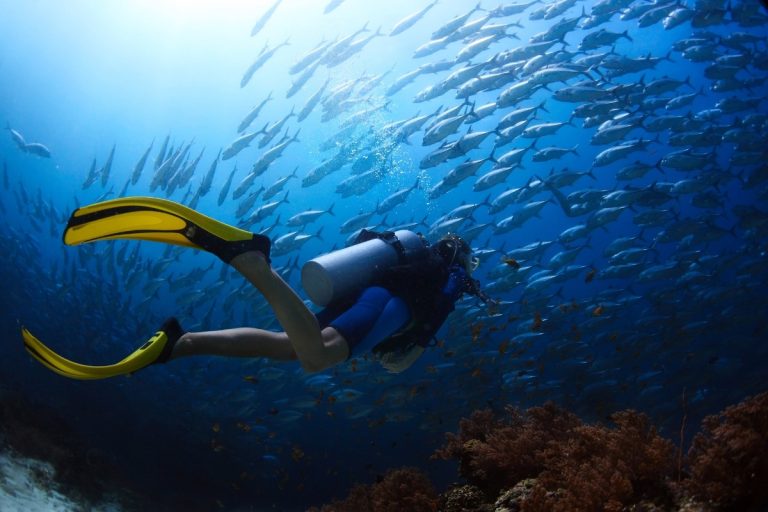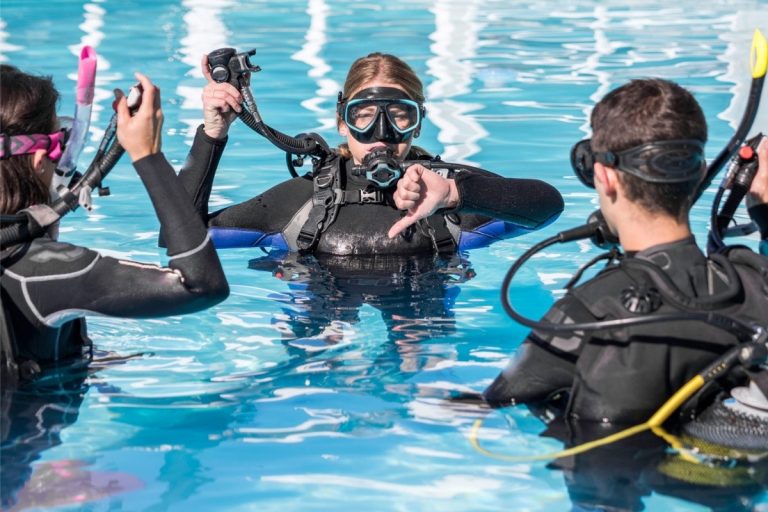- Overview of Continuing Education in Scuba Diving
- PADI Divemaster Course Details
- Prerequisites for the Divemaster Course
- Skills Developed During the Course
- Online Learning and eLearning Options
- Additional Professional Courses
- Diving Community and Experience
- PADI’s Commitment to Conservation
- Frequently Asked Questions
- Embracing Professional Growth in Scuba Diving
Overview of Continuing Education in Scuba Diving
The world of scuba diving offers endless opportunities for growth and adventure, but taking your skills to the next level requires structured continuing education. Whether you’re passionate about marine conservation, dream of leading dive groups, or want to turn your hobby into a career, professional certifications open doors to experiences most recreational divers never see.
Importance of Continuing Education
Continuing education in scuba diving goes far beyond simply collecting certification cards. Each advanced course builds upon your existing skills while introducing new challenges that make you a more confident and capable diver. The progression from recreational diving to professional levels transforms your understanding of underwater environments, safety protocols, and dive leadership responsibilities.
Benefits of Professional Certifications
Professional certifications provide tangible career benefits and personal growth opportunities. Certified professionals can work at dive centers worldwide, lead dive trips to exotic locations, and share their passion with new divers. The training process itself develops critical thinking skills, emergency response capabilities, and leadership qualities that extend well beyond the underwater world.
Types of Scuba Diving Certifications
The certification pathway typically follows a structured progression. Recreational divers start with Open Water, advance through specialty courses, and eventually reach Rescue Diver certification. From there, professional levels begin with Divemaster, followed by various instructor ratings. Each certification builds specific skills while preparing divers for increased responsibilities in the diving community.
PADI Divemaster Course Details
The PADI Divemaster course represents the first step into professional diving careers and is offered by training centers like Oakville Divers with over 25 years of experience. This comprehensive program transforms recreational divers into dive leaders capable of supervising diving activities and assisting with training programs. The course combines theoretical knowledge with practical skills development, creating well-rounded professionals ready for real-world diving scenarios.
Course Structure and Duration
The Divemaster program typically requires 3-4 weeks to complete, though the timeline can be adjusted to fit individual schedules. The curriculum includes online theory components, water skills exercises, rescue workshops, and hands-on experience with actual dive classes. Students also complete dive site mapping exercises and participate in supervised work with new divers, gaining valuable mentoring experience.
Cost and Inclusions
The full PADI Divemaster course costs $999 CAD and includes comprehensive training materials. The program covers online training modules, all required assessments, certification processing, and a Crew Pack complete with decal. However, equipment rentals are not included in the base price, allowing students flexibility in gear choices while keeping costs transparent.
Prerequisites for Enrollment
Before enrolling in the Divemaster course, candidates must hold Rescue Diver certification and have logged at least 40 dives. Current CPR and First Aid certifications are required, along with medical clearance within the past 12 months. These course prerequisites and medical requirements ensure students have the foundational skills and physical readiness for professional-level training.
Flexibility in Learning Options
Modern dive training accommodates busy schedules through flexible learning options. Students can begin with eLearning components, completing theoretical portions at their own pace before attending practical sessions. Some centers offer online-only options at reduced costs for those seeking knowledge without full certification, making professional education accessible to diverse learning preferences.
Prerequisites for the Divemaster Course
Understanding the specific requirements for Divemaster certification helps aspiring professionals plan their educational journey effectively. These prerequisites ensure students possess the necessary foundation skills and experience to succeed in professional-level training while maintaining safety standards throughout the program.
Required Certifications
The pathway to Divemaster begins with solid recreational diving credentials. Students must hold current Rescue Diver certification, demonstrating proficiency in emergency response and diver assistance skills. This certification provides the critical foundation for professional responsibilities, as Divemasters regularly encounter situations requiring quick thinking and appropriate emergency responses during their leadership duties.
Minimum Dive Experience
Professional diving requires substantial practical experience beyond basic certification. Candidates must have completed at least 40 logged dives before beginning Divemaster training, ensuring they possess diverse underwater experience across different conditions and environments. This experience requirement helps students understand the challenges recreational divers face and prepares them for effective leadership roles.
Medical Clearance Requirements
Physical fitness plays a crucial role in professional diving safety. Students must obtain medical clearance from qualified healthcare providers within 12 months of course enrollment. Additionally, current CPR and First Aid certifications within 24 months are mandatory, ensuring professionals can respond effectively to both diving and surface emergencies throughout their careers.
Skills Developed During the Course
The Divemaster program develops a comprehensive skill set that extends far beyond basic diving abilities. Students learn to think like dive professionals, considering safety, logistics, and educational objectives simultaneously. These skills prepare graduates for diverse career opportunities while building confidence in challenging underwater situations.
Dive Site Management
Effective dive site management requires understanding environmental conditions, diver capabilities, and safety protocols. Students learn to assess dive sites for appropriate skill levels, identify potential hazards, and establish safety procedures. This training includes navigation techniques, emergency action plans, and communication strategies that ensure safe and enjoyable diving experiences for all participants.
Assisting with Diver Training
Divemaster candidates gain hands-on experience working with student divers under instructor supervision. This practical training develops teaching skills, patience, and the ability to recognize when divers need additional support. Students learn to demonstrate skills clearly, provide constructive feedback, and create positive learning environments that encourage continued diving education.
Rescue Skills and Workshops
Advanced rescue skills form a cornerstone of professional diving competency. The course includes intensive workshops covering emergency response scenarios, victim recognition, and rescue techniques specific to diving environments. Students practice these skills repeatedly until responses become automatic, ensuring they can act decisively when real emergencies arise during their professional careers.
Online Learning and eLearning Options
Modern diving education embraces technology to make learning more accessible and effective. Online components allow students to master theoretical concepts before applying them in practical settings, maximizing the value of expensive pool and open water training time while accommodating diverse learning styles and schedules.
Introduction to eLearning
PADI’s eLearning platform transforms traditional classroom instruction into interactive digital experiences. Students access multimedia presentations, interactive exercises, and knowledge reviews that reinforce key concepts. This technology-enhanced approach allows learners to progress at their own pace while ensuring comprehensive understanding of complex diving theory and professional responsibilities. What to expect on your open water pool session becomes clearer through these preparatory modules.
Benefits of Online Training
Online training offers significant advantages for busy professionals and students with irregular schedules. The flexibility to study during convenient times eliminates scheduling conflicts while maintaining educational quality. Students can review challenging concepts multiple times, take practice quizzes, and track their progress through comprehensive learning management systems.
Self-Paced Learning Opportunities
Self-paced learning accommodates different learning styles and speeds, allowing students to spend additional time on challenging concepts while moving quickly through familiar material. This personalized approach improves retention and understanding while reducing stress associated with rigid classroom schedules. Students can begin their professional education journey immediately upon enrollment rather than waiting for scheduled class dates.
Additional Professional Courses
The Divemaster certification opens doors to advanced professional training opportunities that can lead to rewarding careers in dive education and leadership. These advanced programs build upon Divemaster foundations while developing specialized skills for specific roles within the diving industry.
Instructor Development Course (IDC)
The Instructor Development Course prepares Divemasters to become Open Water Scuba Instructors, representing the next major step in professional diving careers. IDC training covers teaching methodologies, course standards, and business aspects of dive instruction. Graduates can conduct complete certification courses independently, opening opportunities for employment at dive centers worldwide or establishing independent instruction businesses.
Master Scuba Diver Trainer
Master Scuba Diver Trainer certification allows instructors to teach specialty courses and advance students beyond basic Open Water certification. This rating requires additional training in multiple specialty areas and demonstrates expertise across diverse diving disciplines. Master Scuba Diver Trainers can offer comprehensive training programs that keep students engaged throughout their diving education journey.
Specialty Instructor Certifications
Specialty instructor certifications allow professionals to teach focused courses in areas like underwater photography, wreck diving, or deep diving. These specializations create niche expertise that can differentiate instructors in competitive markets while allowing them to share specific passions with students. Specialty ratings also provide additional income opportunities and career flexibility for diving professionals.
Diving Community and Experience
Professional diving education extends beyond individual skill development to encompass community building and shared experiences. Training centers that prioritize community create environments where students develop lasting friendships while building professional networks that support career growth and continued learning opportunities.
Oakville Divers’ Community Approach
Oakville Divers emphasizes community building throughout their training programs, creating connections that extend well beyond course completion. This approach recognizes that diving is inherently social and that strong communities enhance both safety and enjoyment. Students benefit from mentorship relationships, ongoing support, and opportunities to participate in advanced diving activities with experienced professionals.
Ongoing Dive Trips and Experiences
Professional training centers often organize dive trips that provide real-world experience in diverse environments. These excursions allow students to apply newly learned skills while experiencing different diving conditions and marine ecosystems. Such trips also create opportunities for continued education and professional development through exposure to advanced diving techniques and specialized environments.
International Diving Opportunities
Professional certifications open doors to international diving opportunities that recreational divers rarely access. Certified professionals can work at dive centers worldwide, participate in research expeditions, or lead dive trips to exotic locations. These experiences provide cultural enrichment while building diverse skill sets that enhance career prospects and personal growth throughout the diving journey.
PADI’s Commitment to Conservation
Modern diving education increasingly emphasizes environmental stewardship and conservation awareness. Professional divers often serve as ambassadors for marine conservation, making environmental education an integral component of advanced training programs and ongoing professional development.
PADI AWARE Foundation
The PADI AWARE Foundation leads global efforts to protect ocean environments through education, advocacy, and direct action programs. Professional divers trained through PADI programs learn to incorporate conservation messages into their teaching and leadership activities. This foundation provides resources, training materials, and program support that help diving professionals become effective conservation advocates within their communities.
Global Plastics Initiatives
Marine plastic pollution represents one of the most pressing environmental challenges facing ocean ecosystems today. PADI’s global plastics initiatives educate divers about pollution sources while providing practical tools for reducing plastic waste. Professional divers learn to lead by example through sustainable practices while educating recreational divers about their environmental impact and conservation opportunities.
Marine Debris Programs
Marine debris programs engage divers in hands-on conservation activities that make immediate positive impacts on local marine environments. These programs teach professional divers to organize and lead cleanup activities while collecting valuable scientific data about pollution sources and trends. Such programs demonstrate how diving skills can contribute to meaningful environmental protection efforts beyond recreational enjoyment.
Frequently Asked Questions
What is the first step in professional scuba diving careers?
The first step in professional scuba diving careers is obtaining the Rescue Diver certification.
How long does the PADI Divemaster course typically take to complete?
The PADI Divemaster course typically requires 3-4 weeks to complete.
What are the prerequisites for enrolling in the Divemaster course?
Candidates must hold Rescue Diver certification, have logged at least 40 dives, and possess current CPR and First Aid certifications.
What skills are developed during the Divemaster program?
The Divemaster program develops skills in dive site management, assisting with diver training, and advanced rescue skills.
What is the cost of the PADI Divemaster course?
The full PADI Divemaster course costs $999 CAD.
Embracing Professional Growth in Scuba Diving
Continuing education in scuba diving is essential for those looking to advance their skills and careers. With certifications like Rescue Diver and Divemaster, divers not only enhance their capabilities but also open up a world of opportunities for professional growth and community engagement in the diving industry.
